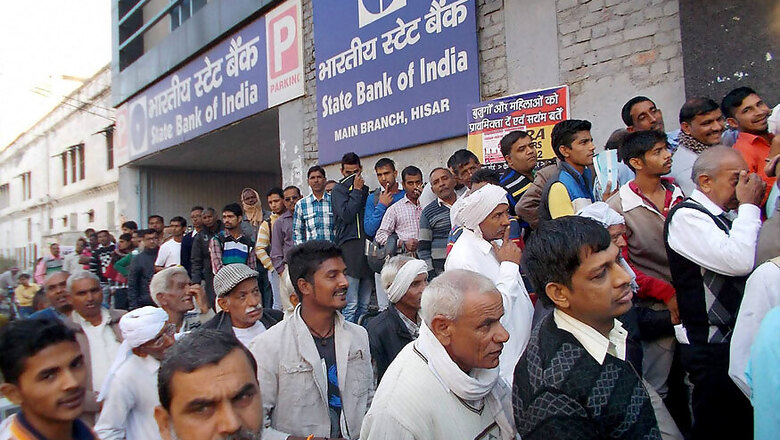
views
The Reserve Bank of India (RBI), in a notification on Monday, said that individuals depositing Rs 5000 and above into their bank accounts will have to provide a "satisfactory" explanation to 3 bank officials on record so that an audit can be carried out later if need be.
Finance Minister Arun Jaitley also clarified on Monday night that no question will be asked if any amount of junked currency is deposited in one go. However, repeated deposits may raise queries.
What are the loopholes in the new Rs 5000 rule?
Many people were waiting for the queues to shorten at bank counters to deposit their old notes. The new rule will prove to be an unnecessary hassle for them.
PM Modi, Finance Minister Arun Jaitley, and the RBI had earlier assured that there was no need to rush to the banks as people have time till December 30 to deposit.
Many accounts are not 100% KYC compliant and the holders of such accounts will face difficulty in depositing their notes.
Black money hoarders can now spread below Rs. 5000 deposits to a number of deposits defeating the purpose of the new rule.
An inquiry by banks on deposits will further eat up already stressed time of the banking system.
How does the new rule affect the common man?
PM Modi, Finance Minister Arun Jaitley reneged on their assurances that people had time until December 30 to deposit old notes.
The new rule is a blow to a common man waiting for queues to shorten before depositing old notes.
It could render legally-earned old notes after first bank deposit useless.
The new rule assumes that old notes still in possession of citizens is black money.
Government's rationale behind the new ‘note rule’
The government assumes that most of the people would have already deposited old currency notes in their possession.
The government expects the new rule will help shorten the queues outside the bank.
It will discourage a late surge in deposits of unaccounted money in regular bank accounts.
The decision has been taken to encourage people to make deposits under the PM Garib Kalyan Yojana, a new window to declare unaccounted for wealth.




















Comments
0 comment